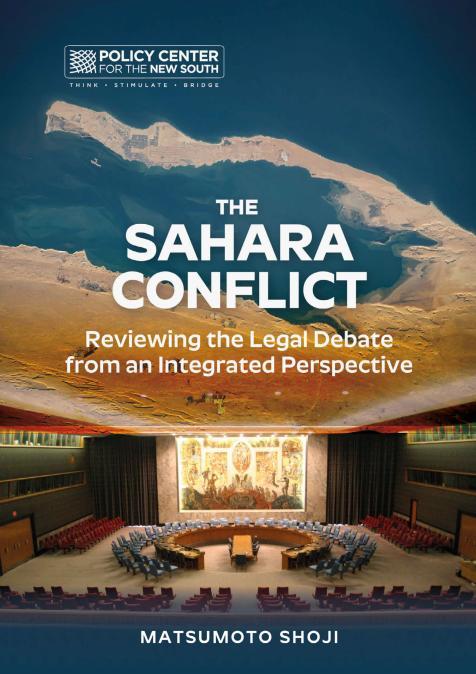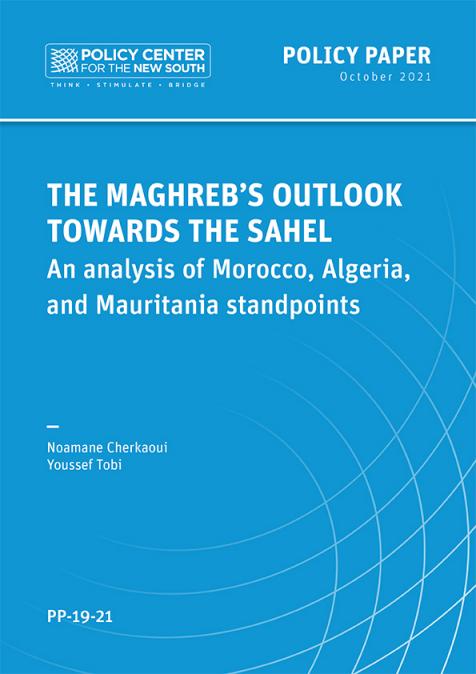Publications /
Book / Report
As the ‘Western Sahara Conflict’, rather a dispute, because in 1975 the Sahara sovereignty was disputed by Morocco, Mauritania and the Polisario, dates back to 1975, so its international legal consideration relates to the Declaration of Principles on Western Sahara by Spain, Morocco and Mauritania (Madrid Accord), concluded in 1975 among Spain, Morocco and Mauritania for decolonizing ‘Western Sahara.’
Here, the term Western Sahara is not geopolitically neutral in the context of the conflict, because the territory is not located in the west of Morocco and Mauritania. It is ‘western’ only for Algeria among the states concerned. Also, it is ‘western’ for the Polisario—the group calling for independence for the Western Sahara territory. So, in Morocco, the territory is called Southern Morocco, Moroccan Sahara, The Sahara region and the like. In this book, it will be termed the ‘Saharan provinces,’ precluding the adjectives of eastern, western, or southern. The conflict shall be termed ‘the Sahara issue,’ instead of the Western Sahara conflict.
Almost all the legal issues related to the Sahara issue so far could be solved by an answer to a single question of whether Morocco assumes sovereignty over the Saharan provinces. Any discussion of the Sahara issue should consider seriously that question, based on international law, before elaborating on other issues, including Morocco’s territorial integrity and the right of Sahrawi people to self-determination in the Saharan provinces.
As such, sovereignty over the Saharan provinces shall be an introduction to the consideration of the Sahara issue. The introductory section of this book is devoted to the issue of sovereignty over the Saharan provinces. Consideration of the issue of sovereignty should be done in conformity with existing international law, not with legally non-binding materials.
Any legal considerations should be based on lex lata , not lex ferenda ( Lex ferenda serves as a label for something which has at least conceptual existence, as a contrast or opposite to lex lata, the law that exists and obliges the subjects of law to adopt, or to refrain from, certain defined courses of conduct in certain defined circumstances (Cambridge University Press ). The most significantly relevant lex lata in this regard is the Madrid Accord, rather than a legally non- binding advisory opinion from the International Court of Justice, a private opinion from a legal counsel to the United Nations Secretary-General, or UN General Assembly resolutions, which cannot impose obligations on UN member states. Nevertheless, the decisions of certain international and domestic courts have relied on such non-binding materials, i.e. not on international law. What is worse, such decisions have been quoted in subsequent court decisions, without verification. Surprisingly, these decisions do not take the Madrid Accord seriously. That is why the Sahara issue should be considered from the international legal perspective.
Five chapters and a paper in an annex in this book have been drawn largely from the following papers, published by the Policy Center for the New South (PCNS), Rabat, Morocco. These have been updated, amended, and added to, although the titles are the same:
Chapter 2: Jus Cogens and the Right to Self-Determination, Falsifiability of Tests; Policy Center for the New South, Research Paper, RP-20/12, September 2020.
Chapter 3: On Additional Issues in the Western Sahara Advisory Opinion; Policy Center for the New South, Research Paper, PP-21/05, January 2021.
Chapter 4: Manchukuo and the Self-Declared SADR: International Law of Recognition and the Sahara Issue; Policy Center for the New South, Research Paper, PP-21/02, January 2021.
Chapter 9: Morocco’s Sovereignty over Natural Resources in Saharan Provinces; Policy Center for the New South, Research Paper, PP-20/01, January 2020.
Chapter 11: No ‘Military Occupation’ in the Saharan Provinces; Policy Center for the New South, Research Paper, PP-20/29, November 2020.
Annex: 2019 Secretary-General Report on Sahara: What’s New, ‘Neighboring States as Parties, in Roundtable; Policy Center for the New South, Policy Brief, PB-19/22, June 2019.
As the Sahara issue remains ongoing, and besides in the more deteriorated manner, new legal issues may well emerge, although this book is meant to encompass the main legal issues relating to the Sahara issue. Even then, it is expected that this book will be of some help for discussing such issues as well.
The reader might have noticed by now that this project is the fruit of a collaboration with PCNS, a Moroccan think tank aiming to contribute to the improvement of economic and social public policies that challenge Morocco and the rest of Africa as integral parts of the Global South. PCNS pleads for an open, accountable, and enterprising ‘new South’ that defines its own narratives and mental maps around the Mediterranean and South Atlantic basins, as part
of a forward-looking relationship with the rest of the world. Through its analytical endeavors, PCNS aims to support the development of public policies in Africa and to give the floor to experts from the South. It brings together researchers, publishes their work, and capitalizes on a network of renowned partners, representative of different regions of the world, including Asia.
Finally, I would like to express my special thanks to my colleagues, the President of PCNS, Dr Karim El Aynaoui, Dr El Mostafa Rezrazi, former Ambassador of Morocco to the UN, Dr Mohamed Loulichki, and Nassim Hajouji.
Shoji Matsumoto
Sapporo, Japan - 2024








